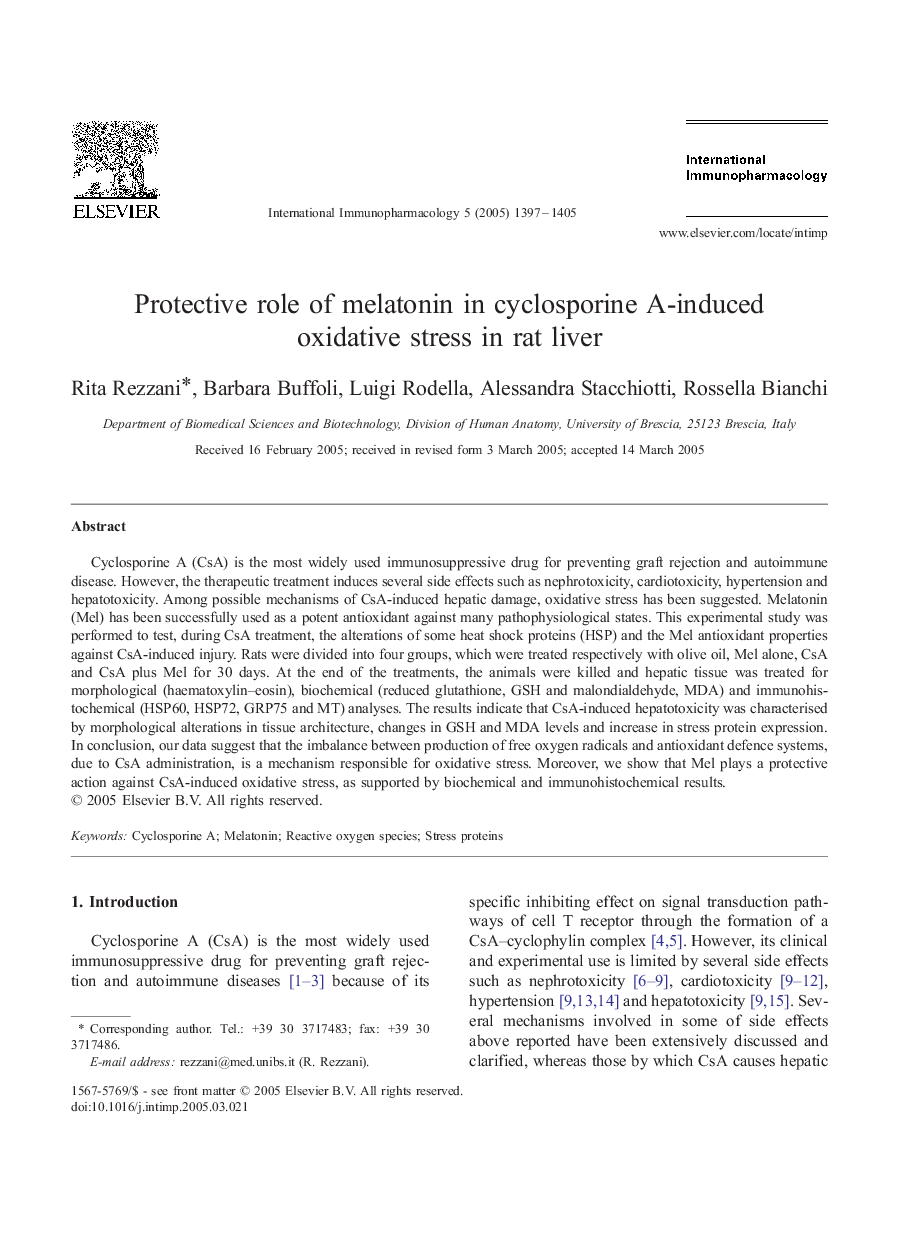| Article ID | Journal | Published Year | Pages | File Type |
|---|---|---|---|---|
| 9008017 | International Immunopharmacology | 2005 | 9 Pages |
Abstract
Cyclosporine A (CsA) is the most widely used immunosuppressive drug for preventing graft rejection and autoimmune disease. However, the therapeutic treatment induces several side effects such as nephrotoxicity, cardiotoxicity, hypertension and hepatotoxicity. Among possible mechanisms of CsA-induced hepatic damage, oxidative stress has been suggested. Melatonin (Mel) has been successfully used as a potent antioxidant against many pathophysiological states. This experimental study was performed to test, during CsA treatment, the alterations of some heat shock proteins (HSP) and the Mel antioxidant properties against CsA-induced injury. Rats were divided into four groups, which were treated respectively with olive oil, Mel alone, CsA and CsA plus Mel for 30 days. At the end of the treatments, the animals were killed and hepatic tissue was treated for morphological (haematoxylin-eosin), biochemical (reduced glutathione, GSH and malondialdehyde, MDA) and immunohistochemical (HSP60, HSP72, GRP75 and MT) analyses. The results indicate that CsA-induced hepatotoxicity was characterised by morphological alterations in tissue architecture, changes in GSH and MDA levels and increase in stress protein expression. In conclusion, our data suggest that the imbalance between production of free oxygen radicals and antioxidant defence systems, due to CsA administration, is a mechanism responsible for oxidative stress. Moreover, we show that Mel plays a protective action against CsA-induced oxidative stress, as supported by biochemical and immunohistochemical results.
Related Topics
Life Sciences
Immunology and Microbiology
Immunology
Authors
Rita Rezzani, Barbara Buffoli, Luigi Rodella, Alessandra Stacchiotti, Rossella Bianchi,
